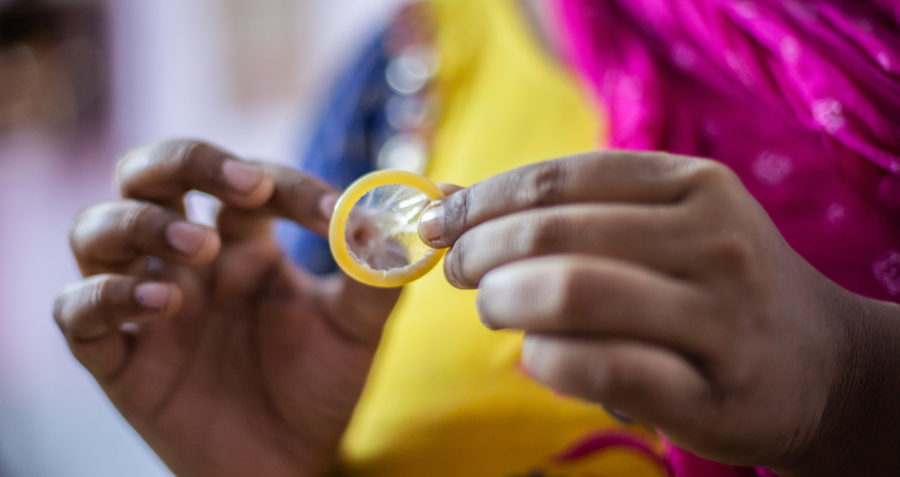Three reasons to be excited about the future of HIV prevention
 Frontline AIDS/Gemma Taylor/2018
Frontline AIDS/Gemma Taylor/2018
HIV prevention worldwide is in crisis. Yet despite faltering progress across many regions, and HIV rates increasing in some regions, there are a number of new research areas that hold significant promise.
Here, we look at three new areas of prevention under development that give us hope for the future.
1. LONG-ACTING INJECTABLE PREP
Taken as an injection once every two months, cabotegravir, a new antiretroviral drug, has been found to be a safe and effective way to prevent HIV infections among many different populations, including cis- and transgender women, and cisgender men who have sex with men.
Research on injectable PrEP is compelling. When the HPTN 084 study compared the use of cabotegravir injections with oral daily PrEP among cis-gender women, researchers found the injections were 89% more effective at preventing HIV than taking daily pills.
These excellent findings complement the results reported by a sister study, HPTN 083 in 2020, which also found cabotegravir to successfully prevent HIV infections among men who have sex with men and transgender women.
This means we’re not only looking at a new method of prevention, but potentially a better method for women and other groups, who may struggle with adhering to daily pill treatment long-term.
If implemented correctly, injectable PrEP could prove to be a genuine game changer, providing more discreet options that fit into people’s existing sexual and reproductive health practices.
2. EXPANSION OF HIV PREVENTION TOOLS DESIGNED FOR WOMEN
The Dapivirine ring is a flexible silicone vaginal ring developed by the International Partnership for Microbicides, which women can insert autonomously to protect themselves from contracting HIV. The ring is very well tolerated and works by delivering Dapivirine, a HIV drug, locally in the vagina over the course of 30 days.
The ring – which has been shown to halve women’s risk of contracting HIV – is a particularly welcome addition to the prevention toolbox, as it is the first discreet long-acting HIV prevention option specifically designed for women.
Excitingly, the ring is now recommended by the World Health Organization as an additional prevention strategy for women as part of combination prevention approaches. This is extremely good news, paving the way for approvals at country-level.
In July 2021, Zimbabwe became the first country to approve the ring as a new method of HIV prevention, and a number of other African countries are expected to follow suit. All of this means we could see the Dapivirine ring hitting shelves as early as 2022.
And it doesn’t end here. Research is still ongoing into a 90-day dual purpose vaginal ring which could protect against both HIV and unintended pregnancy.
3. THE PROMISE OF BROADLY NEUTRALISING ANTIBODIES
Broadly Neutralising Antibodies – or bNAbs for short – are a particular kind of antibody produced by some people living with HIV, which are capable of neutralising different strains of HIV. Because of this, they are of great interest as a potential new area of HIV prevention.
Two landmark studies were designed to test the efficacy of a particular kind of broadly neutralising antibody called VCR01. They found that long-term administration of VRC01 did show a preventative effect against some strains of HIV. While VCR01 had little effect on most strains of HIV, for those it was active against, new cases fell by 75%. This suggests that combining multiple antibodies could be effective in the future.
Our journey to understand the use of bNAbs is still ongoing. But importantly we now have proof of concept, to help guide advances in this exciting field.


